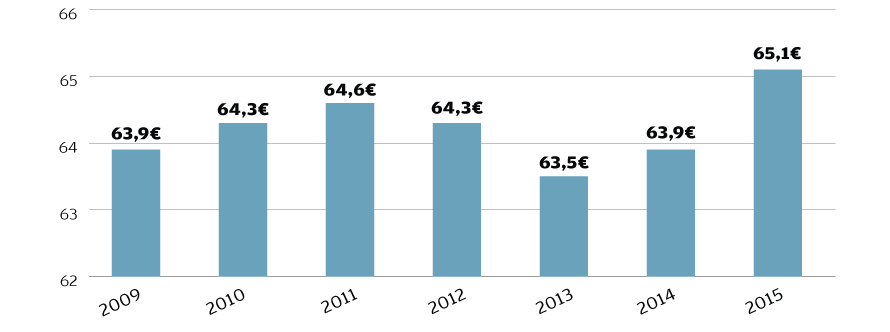Cash: top of the charts in Portugal
CashMoney in physical form such as banknotes and coins. More is king in Portugal where the majority of day-to-day transactions continue to be carried out with paperSee Banknote paper. More moneyFrom the Latin word moneta, nickname that was given by Romans to the goddess Juno because there was a minting workshop next to her temple. Money is any item that is generally accepted as payment for goods and services and repayment of debts, such as taxes, in a particular region, country or socio-economic context. Its onset dates back to the origins of humanity and its physical representation has taken on very varied forms until the appearance of metal coins. The banknote, a typical representati... More and coins. In fact, 70% of all payments in Portugal are carried out in cash. If the average Portuguese makes approximately 52.3 payments per month, 36.7 of these are made in cash.
This also explains why Portugal is the country in the EU with the highest amount of ATMs per capita: 1.36 per 1000 people. Despite a slight decrease in ATMs in Portugal since 2009 (13’919 in 2015, down -0.9%), the number of withdrawals per year has been progressively growing since 2013.

Also, the total amount of cash withdrawn during each ATM visit has steadily increased since 2013. On average, the Portuguese withdraw 65.10€ and are generally distributed 20€ bills. In fact, the €20, immediately followed by the 10€, are the two most popular denominations.

To read the original article [in Portuguese], please click here.
Graph source: www.jornaldenegocios.pt